Business Story : Bel and Dairy-Industry Innovation
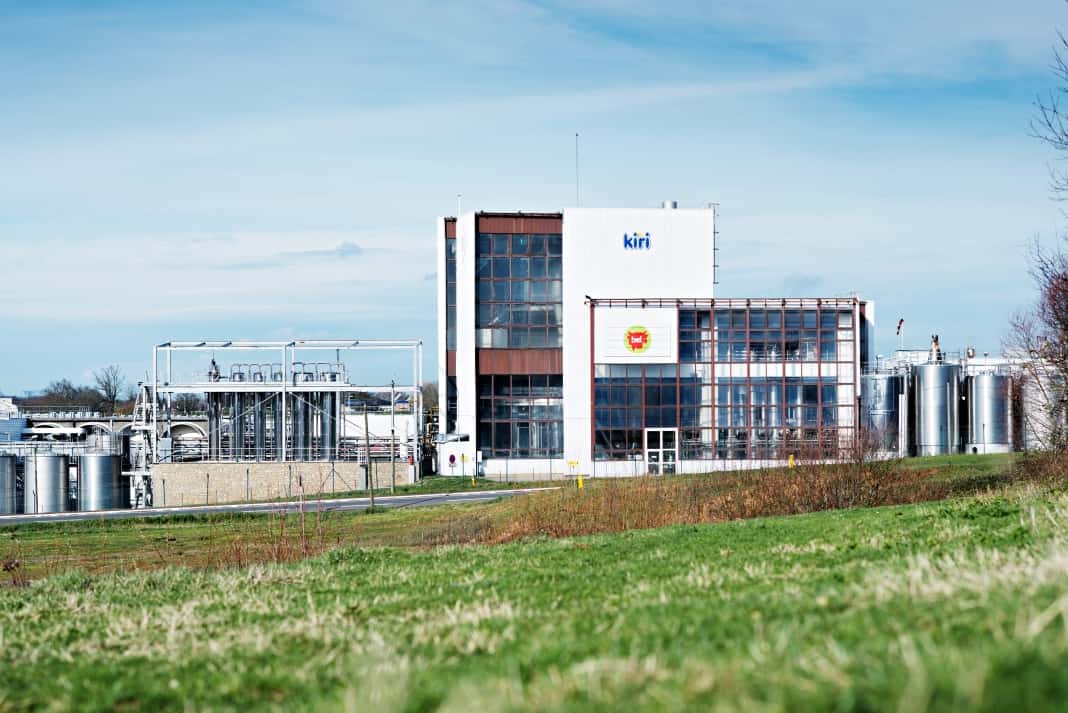
The cheese company Bel seemed destined to remain a small, family-owned enterprise producing authentic gruyere and prize-winning comté cheeses, until the day when it decided to leave tradition behind and carve out a new market niche for itself through innovation.
It was in the Jura region of France, home of famous comté cheese, that Jules Bel Company was established during the mid-19th century to age and trade in cheeses. Léon, son of the founder, was the visionary of the family. At the turn of the 20th century, he decided to expand the company’s offerings through a new process that produced melted cheese that could easily be transported long distances. At the beginning of the Roaring Twenties, he created La Vache qui Rit (The Laughing Cow). Packaged in a round box with small portions that were both convenient and economical, La Vache qui Rit was a stroke of marketing genius and the beginning of a series of innovations that appealed to the tastes of the time.
Another iconic Bel product was Babybel, produced in the 1930s and then re-launched in 1952 in northeastern and southwestern France. “At that time, cheese consumption was regional, and the Dutch cheese edam with its red rind, which inspired Babybel, was very popular in those parts of France,” says Simone Marchal (HJF 50), who worked at Bel from 1953 to 1993. She adds, “Distributed nationally beginning in 1964, Babybel was in tune with the evolution of French food habits. French people were beginning to be less interested in strong cheeses, and they were buying more cheese in self-service stores.” At the same time, family life was changing, with children and parents eating different things.
La Business Story de Bel en images
-
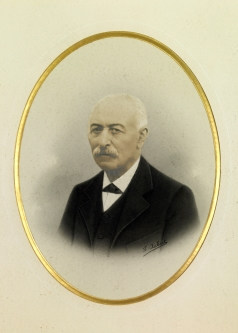
1865 : Established in Orgelet, Jura, by Jules Bel, 23 years old, as an eponymous establishment active in the trade and aging of regional cheeses (emmental, gruyere and comté). -
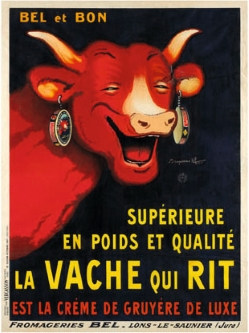
1921 : Léon Bel launched La Vache qui Rit (The Laughing Cow), a soft cheese packaged in individual portions, with an image of a cow designed by Benjamin Rabier and advertised extensively. -
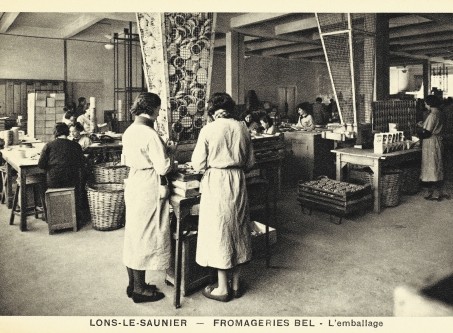
1952 : Babybel, created in 1931, was not launched until 1952, in regional markets. Since supermarkets did not yet exist, it was sold in dairy shops. -
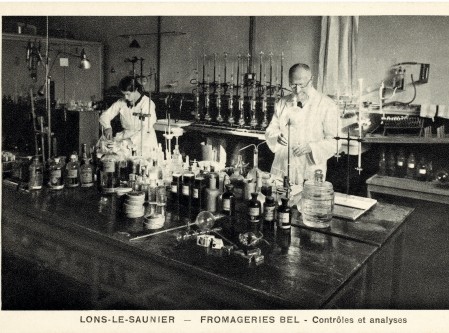
1960 : A fun new addition to appetizers, La Vache qui Rit (The Laughing Cow) was offered in small cubes (1.7 cm) with individual aluminum wrappers. First called La Vache qui Rit Aperitif Cocktail, it was renamed Apéricubes in 1976. -
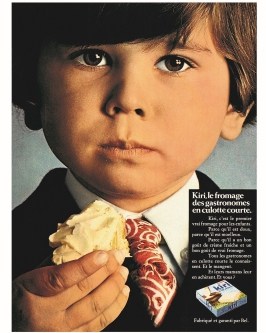
1968 : The launch of Kiri, in May, attracted a lot of notice. This “cheese for gourmets in short pants”, with a creamy taste, was designed to appeal to children. Be a kid; ask for a Kiri. -
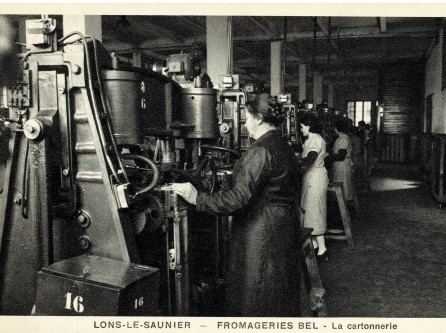
1976 :Mini Babybel carves out a niche among individually-portioned cheeses. The line was expanded with an emmental version (yellow rind, 1998), a goat-cheese version (green rind, 2005) and the gouda and “Caractère” versions (in 2013). -
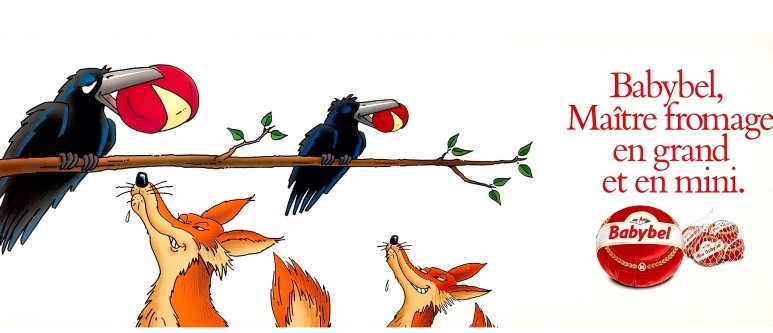
1995 : Pik & Croq livened up snack time with a mini-package of La Vache qui Rit (The Laughing Cow) and breadsticks. It was an immediate success at a time when snack products were becoming more and more popular. -
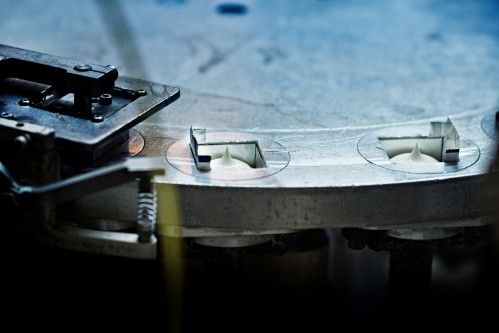
2017 : For Bel, innovation goes hand-in-hand with advanced manufacturing processes. The company has a history of meeting technological challenges, for example in the creation of the Mini-Roulé Babybel (Babybel Mini-Roll), cheese in the form of a spiral to be unrolled like a coil of licorice. -
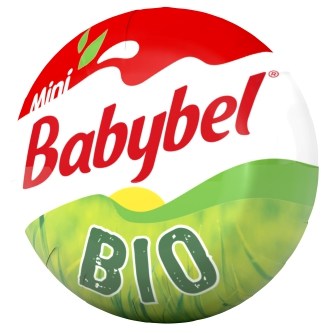
2018 : Creation of Mini Babybel Bio, made from 100% organic milk from French cows raised in pastures 100% free of genetically-modified crops. The new product retains Babybel’s traditional taste and packaging.
Text in the Kiri ad : Kiri is the first cheese just for kids. Because it’s mild. Because it’s soft. Because it has a yummy taste of sour cream and a yummy taste of real cheese. All gourmets in short pants know it. And eat it. And their moms buy it for them. And you? Manufactured and guaranteed by Bel.
1968, the Kiri revolution
Kiri was created just for kids. “Its creamy texture made it a fresh cheese but one that could still be kept for a long time,” says Simone Marchal. And, its individual portions wrapped in aluminum, packaging which had already proved popular for La Vache qui Rit, could be easily opened by small hands. Kiri was a winner from the moment it was launched: in May 1968! She adds, “France was paralyzed and people were glued to the radio, where we invested all our advertising budget. Our factory in Sablé was operating non-stop!”
She was also present for the birth of Mini Babybel in 1976. “The ideal snack, easy to take with you, it benefited from the shorter lunches and longer work days of the time,” she explains. Once again, the packaging was a big success, with individually wrapped portions in a mesh bag that was easy to stock in stores and convenient for consumers to carry. “Through its commitment to innovation, Bel has developed unique production systems that have resulted in top-selling products,” emphasizes Jean-Marc Guesné (M.04), member of the administrative board of the Bel foundation. Bel’s Apéricubes, whose manufacturing process is a carefully guarded secret, have been leaders in their field since 1960. Other examples of inventive products created through Bel’s technological prowess include Pik & Croq (breadsticks meant to be dipped in La Vache qui Rit) and Boursin Roulé (a ball of cheese in a thin slice of ham).
Creative offerings
All these innovations have driven Bel’s international growth. Around 80% of its sales are now outside France. As Jean-Mark Guesné points out, “La Vache qui Rit can resist high temperatures and doesn’t need to be refrigerated, so it’s perfect for emerging markets, where it’s seen as an economical and convenient source of calcium.” From 2011 to 2015, he participated in the creation of Goodi, a sweet dairy bar designed for the Vietnam market to coincide with the launch of Sharing Cities, a distribution network made up of street vendors.
At the beginning of the 21st century, Bel’s innovation drive has not slowed down: the company has created almost 50 new products since 2006. Mylène Collier (H.15), Product Head of Babybel France, participated in the launch of the fun-to-eat Babybel Mini-Roulés (Babybel Mini-Rolls), a 2017 success story. “Mini-Roulés are surprising because their rolled shape resembles a coil of licorice!” she points out, adding, “It took years of technological innovations to produce this unique shape for a cheese product based on a simple recipe that contains no additives or preservatives.” And in April 2018, the Mini Babybel Bio was born. “The only organic cheese on the market meant only for kids, it responds to growing demand among parents. And Bel is also committed to offering fair prices to French milk producers,” Mylène Collier explains. Bel’s most impressive innovation? Creating cheese products in tune with their times.
- Food innovation : A taste of the future
- Laurent Marcel (H.94): “Our society’s values are revealed in our plates”
Published by Marianne Gérard

